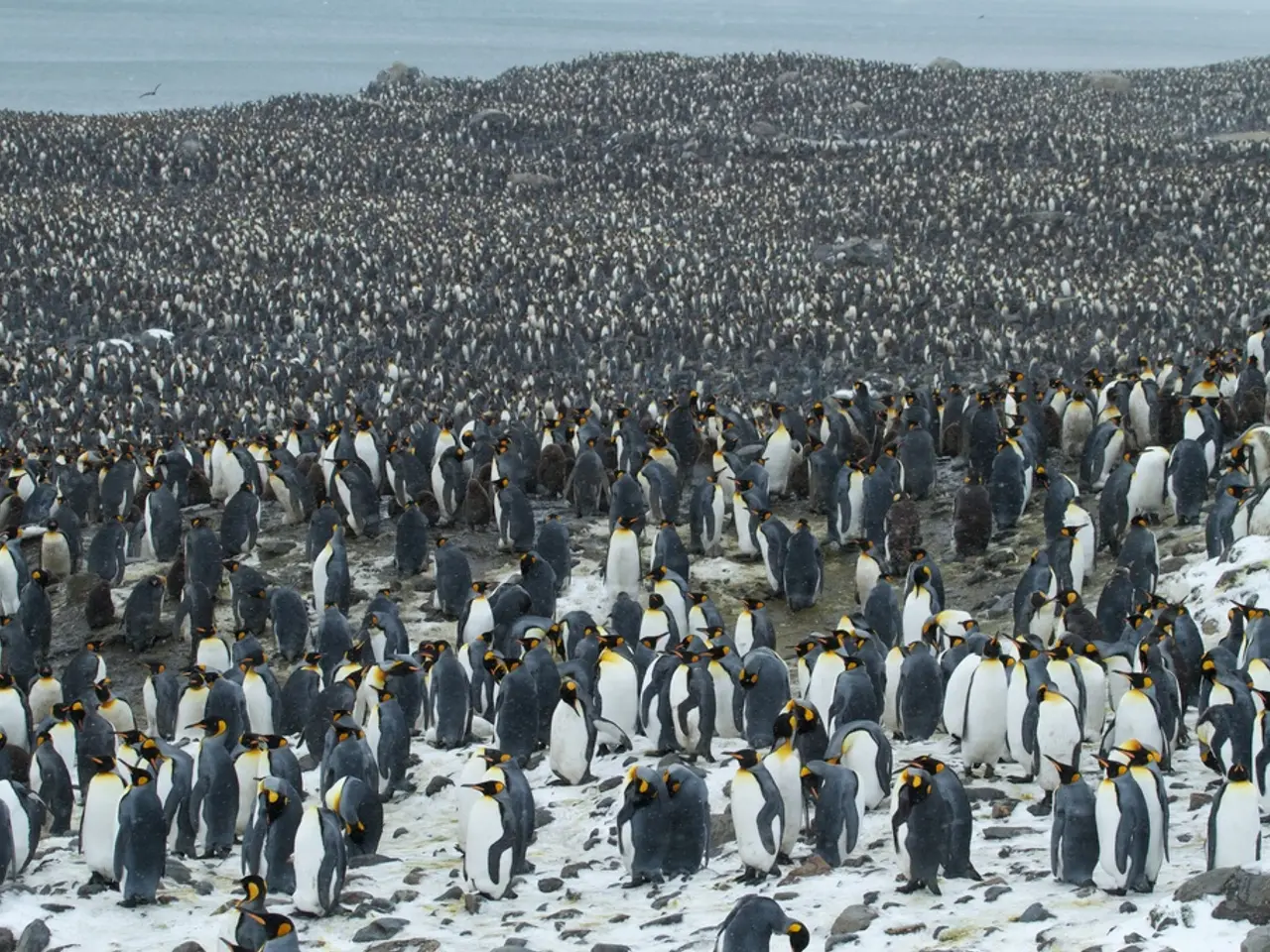Global Antarctic climate changes pose a severe risk, potentially causing catastrophic effects worldwide.
A new study published in the prestigious scientific journal Nature has revealed alarming changes in Antarctica's ice, ocean, and ecosystems, caused and affected by global warming.
According to the research, a "rapid and substantial slowdown" of the Antarctic Overturning Circulation has already begun. This system of ocean currents plays a crucial role in regulating the Earth's climate, and its stagnation could lead to widespread climate and ecosystem impacts.
The study also predicts a potential risk: the collapse of the Antarctic Overturning Circulation. Evidence from the previous interglacial period suggests that such a collapse could occur under current conditions. This could speed up warming in the region and beyond, and could push some marine species toward extinction.
The study's lead author, Professor Nerilie Abram from the Australian National University, stated that some changes in Antarctica will be difficult to stop.
Antarctic sea ice cover has decreased dramatically over the last decade, retreating an average of 120 kilometers (75 miles) from the continent's shoreline since 2014. This sea ice retreat leads to the replacement of reflective surfaces with deep blue water, which absorbs more sunlight.
The unstoppable collapse of the West Antarctic Ice Sheet is a major global concern, according to the study. If global warming continues, a part of the Antarctic ice sheet could cause at least 3 meters of sea level rise. This sea level rise would flood coastal areas inhabited by hundreds of millions.
Over the last two years, emperor penguin chicks have perished at multiple breeding grounds due to sea ice giving way earlier than usual under their tiny feet. This sea ice retreat is happening about three times faster in 10 years than the decline in Arctic sea ice over nearly 50 years.
The study examined evidence of abrupt changes in sea ice, regional ocean currents, Antarctica's ice sheet and ice shelves, marine life, and how they interact. On current trends, Antarctica could essentially become ice-free in summer sooner than the Arctic.
Ninety percent of the heat generated by manmade global warming is soaked up by oceans. The greenhouse gas emission decisions made over the coming decade or two will determine how much ice will be lost and how quickly it will be lost. This stagnation could lead to an intensification of global warming and a decrease in the ocean's capacity to absorb CO2.
The search results do not provide the name of the author of the research report. However, the findings underscore the urgent need for action to curb greenhouse gas emissions and slow the pace of global warming.
Read also:
- Nightly sweat episodes linked to GERD: Crucial insights explained
- Antitussives: List of Examples, Functions, Adverse Reactions, and Additional Details
- Asthma Diagnosis: Exploring FeNO Tests and Related Treatments
- Unfortunate Financial Disarray for a Family from California After an Expensive Emergency Room Visit with Their Burned Infant








